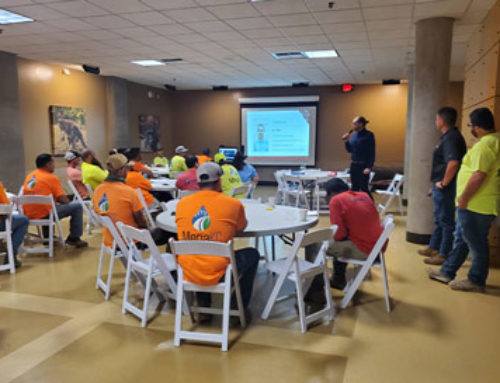The average salary for construction jobs in Kansas City is roughly $46,714 annually. However, entry-level positions can pay as little as $40,000, while management can earn as high as over $100,000.
Understanding your professional growth path in the construction industry is important to succeed. After all, some of the best-paying positions are directors and managers who oversee large projects. But it takes time, training, and in some cases education before you can get there.
Here’s your guide to construction jobs in Kansas City and what to expect.
Why Look for Construction Jobs in Kansas City
As previously mentioned, construction jobs can pay a decent salary. Even some of the lowest-tier positions give you much more than the federal minimum wage. That can also include benefits such as worker’s compensation, disability insurance, health, dental, and vision insurance, various incentives, and paid vacation.
In addition, there’s a lot of variety in the construction industry.
A commercial builder or renovator is one of the most common construction jobs that people know about. These are projects that specialize in commercial buildings and properties, such as warehouses, offices, and retail stores. Not only can these projects prove much more extensive and complicated, but there’s a whole list of regulations and planning to take into account.
As you move up the chain of command, you gain more responsibility. Construction managers coordinate and supervise all kinds of commercial projects. These can be anything from homes to major roads and parks to aquatic facilities.
The main benefit of becoming management is that you will earn a much higher salary and have more control over projects.
Construction Requirements and Certifications
How exactly do you start your career in construction? Although these jobs are often considered perfect for people without any professional experience, they are not without their own set of requirements. Additionally, you’ll need certain certifications and training before you can earn new positions.
Minimum Requirements
First of all, it’s important to understand that the term “construction” applies to a number of different jobs. The Bureau of Labor Statistics lists almost two dozen roles that would qualify. Each one has its own minimum requirements.
For example, helpers or laborers do a lot of the unloading and loading, as well as helping more skilled workers. They don’t require any formal training, although there are some associated apprenticeship programs.
Meanwhile, trade workers such as electricians and roofers need specific training through an apprenticeship. It could take them at least a few years working on the job and in the classroom before they can work alone.
On top of that, construction workers must be able to work long hours on their feet, lift heavy loads, and bend or kneel for extended periods of time.
Helpful Certifications
Certifications are not required to work in the construction industry. However, the lack of them will serve as a roadblock if you hope to rise in the field. There are all sorts of specialty positions that will only consider you if you have the necessary training and education.
Some worksites require workers to have a construction safety and health card. These are acquired through an OSHA-approved training program that can take either ten or thirty hours.
The American Concrete Institute (ACI) offers a variety of certifications for concrete usage, mixing, and more. The Leadership in Energy and Environmental Design (LEED) certification program helps you get started with green building and design.
Always make sure to check what relevant certifications there are for whatever field you’re entering.
Professional Path
The construction industry is full of all kinds of career opportunities, but many of them require a specific path. You can’t just get jobs in Kansas City, MO, straight out of high school and expect to rise in the ranks.
Education and Training
Construction apprenticeships can begin as early as high school. They will last varying years depending on the field you’re entering. In that time, you’ll get hands-on experience working on sites, looking at blueprints, and learning the job.
Alternatively, there are some university programs for construction management and similar positions. You’ll learn everything you need to know about safety and construction law, scheduling, ethics, and finances.
Aspiring professionals will also need various certifications, depending on their location and work.
Entry-Level Opportunities
An apprentice becomes a journeyperson when they’ve completed their training. This is the first time they are considered a licensed professional in their field. However, it can take more years of work before they can pursue other jobs such as superintendent or planner.
This is usually the point at which an individual pursues further education to advance their career. However, it is possible to obtain new roles and more responsibility if you take training courses and acquire new certifications.
Management Opportunities
The highest-paying position with the most responsibility is a director or manager. These are often the ones that are the least hands-on but have the most oversight. If something goes wrong on the job site, then it’s up to you to fix it.
A management position could be anything, such as human resources, safety manager, or the person in charge of procurement. How you progress in your field is entirely up to you.
You might decide that you want to teach management in a classroom. It’s also possible that you open up your own warehouse for other companies to utilize.
Find Kansas City Construction Jobs
Finding construction jobs in Kansas City can be as easy as opening up a job listing. However, some of the best-paying positions may require more advanced training and specific certifications. You’ll also find yourself stuck without vertical growth unless you get more experience.
MegaKC is a general contractor that works primarily in the Kansas City area. We’re employee-owned and have worked in both the private and public sectors.
If you’re interested in working in construction and gaining experience, you can do so through our apprenticeship or internship program.




